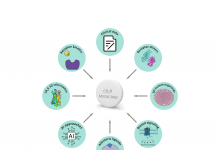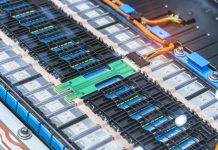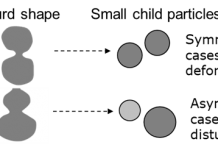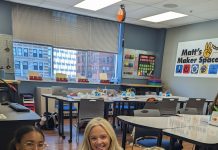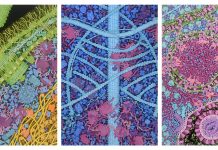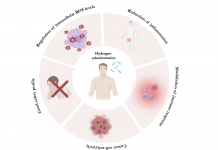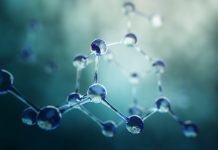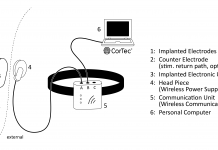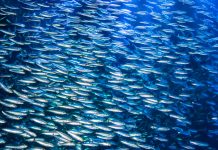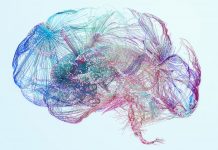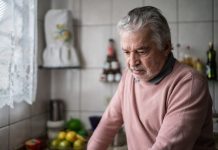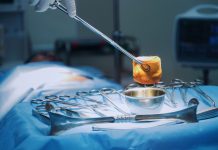Open Access Government produces compelling and informative news, publications, eBooks, and academic research articles for the public and private sector looking at health, diseases & conditions, workplace, research & innovation, digital transformation, government policy, environment, agriculture, energy, transport and more.
Home 2023
Archives
CB₂R ligands to treat inflammatory diseases
Researchers discuss how scientific innovations might influence the discovery of future tailor-made CB2R-based anti-inflammatory treatments.
Post-pandemic MERS-CoV still presents risks
Darryl Falzarano, Research Scientist at the Vaccine and Infectious Disease Organization (VIDO), discusses potential solutions that are needed to tackle the coronavirus known as MERS-CoV.
Online pressure and gas analysis of lithium-ion cells during abuse tests
Dr Carlos Ziebert, Leader of the Group Batteries – Calorimetry and Safety, KIT, explains how online venting gas analysis of batteries can be performed using a combination of battery calorimetry and online mass spectrometry.
Reducing restraint on residents in Hong Kong care home settings
Individuals from the Jockey Club Centre for Positive Ageing discuss reducing using restraint on residents in Hong Kong care home settings.
Youth as essential problem-solvers of our futures
Nancy Butler Songer, Associate Provost of STEM Education at the University of Utah, discusses the importance of supporting and including young people as part of environmental decision-making teams and key problem-solvers of our futures.
Interdisciplinary research on the splitting process of various particles
Professor Ken Naitoh from the Department of Applied Mechanics and Aerospace Engineering at Waseda University in Japan, walks us through universal laws discovered from outstanding integrated interdisciplinary research on the splitting processes of various particles.
Artificial intelligence (AI) and biomaterials: A perfect BandAId™
Thomas J Webster, Ph.D., Professor and Entrepreneur, is investigating the potential of AI in medical applications and biomaterial production.
How can Europe and its industry transition to a more circular and sustainable society?
Mattias Lindahl from Linköping University and Carl Dalhammar from Lund University explore how Europe and its industry can transition to a more circular and sustainable society.
Controlling ovarian cancer: An introduction to detection and treatment
With current strategies proving inadequate, what needs to be done is to further the research into detecting, treating, and controlling ovarian cancer.
Transforming integrative maker education for STEM: Empowering pre-service teachers
Dr Ginny Chambers and Dr Kamryn York from Point Park University tell us about a project aimed at enhancing integrative maker education through the training of pre-service teachers, focusing on elementary education.
Computational biology is poised to advance precision medicine with machine learning
Today, scientists are attempting to model whole cells using computational biology, building virtual cells that capture the dynamics of living.
Hydrogen therapy: An emerging therapeutic strategy in cancer treatment?
Professor Giovanni Brandi (1,2) and Dr Simona Tavolari (1,2) from the University of Bologna discuss findings from preclinical and clinical studies that highlight the potential of hydrogen therapy in cancer treatment.
Probing the individuality of cells and molecules
Sotaro Uemura, Professor at the University of Tokyo, probes the individuality of cells and molecules.
Options for stroke survivors: From stroke to conventional therapy
Discovery of novel treatment options for stroke survivors – requirements for implanted systems.
The successes and challenges of organ transplantation
Fadi G. Lakkis, Professor of Surgery at the University of Pittsburgh, charts the successes and challenges of organ transplantation.
Pelagics: What are the opportunities and challenges?
Turid Rustad from the Norwegian University of Science and Technology provides an overview of pelagic fish and the impact of the growing global demand for food.
Innovative gene therapy approaches for brain tumour-related epilepsy
Professor Mark Cunningham and Dr Kate Connor from Trinity College Dublin discuss the burden of brain tumour-related epilepsy and why novel therapies are urgently needed to improve the quality of life for those affected.
Major depressive disorder: Brain signals as biomarkers for depression
Tiago Costa from Delft University of Technology explores the potential of neuroimaging techniques, specifically non-invasive electroencephalography (EEG), in detecting biomarkers for depression.
A case for higher spending on public goods
Yew-Kwang Ng, Emeritus Professor in the Department of Economics at Monash University in Australia, argues in favor of increased spending on public goods.
Dispersing the misconceptions of molecular iodine in medical uses
There are many uses for molecular iodine (I2) for infection prevention. Dispelling misconceptions about its toxicity, Dr. Jack Kessler, Chief Scientist at I2Pure, discusses the reality of I2 across medical indications and seeks to grow its application.

